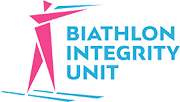Governance
NF Governance
The BIU is responsible for assisting the IBU in ensuring that good governance practices are developed by all National Federations that are full members of the IBU.
Biathlon Governance Standards are the implementation of processes and structures that ensure the effective, efficient and ethical management of decisions and actions at all levels of a National Federation (NF). Governance standards help you act in the best interests of your NF and biathlon. They can aid your NF in becoming more stable, improve functions, encourage growth, as well as reducing risks. By demonstrating that your NF is well-run, performance can increase, and financial results can improve. Governance standards can result in increased revenue and maximise attractiveness to commercial partners. You can also increase trust from athletes, as well as other stakeholders and partners.
Target 2030 is the IBU strategic framework for the future of biathlon. A strategic area of IBU’s Target 2030 is implementing good governance. At the IBU and BIU, we aim to lead the future development of international best practice for integrity and governance while assisting NFs to strengthen your own governance. NF Governance is detailed in Target 2030. Proactively supporting NFs to implement governance standards is a core part of the BIU and IBU’s work. There are three key areas to support this:

Safeguarding The implementation of a culture of robust safeguarding practices across the biathlon family. Safeguarding in biathlon is the process of protecting children and adults from harm by providing a safe environment. Safeguarding outlines measures to protect the well-being and rights of all involved in sport and works to prevent harms. Safeguarding creates safe access to biathlon for everyone. This ensures wider participation of the sport, as well as a more accessible environment.

Financial transparency NF corruption can be prevented through transparency of financial management. This involves the organisation, directing, controlling and strategic planning of the finances of an organisation. It can ensure the optimal and efficient use of funds. Financial management and transparency enhances trust from athletes and other stakeholders, and ensures resources are used appropriately and effectively, helping to reduce fraudulent practices.

Dispute resolution The promotion of effective best practices for dispute resolution via appropriate independent arbitration procedures. Dispute resolution is the process of resolving disputes between parties. This involves having policies and procedures in place in order to set out what to do in the event of a dispute. Dispute resolution mechanisms means that disputes are handled appropriately and the right to a fair process is ensured. Furthermore, it can assist with ensuring that the athlete selection process is transparent and fair, with the right to appeal.

